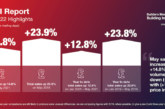Henry Manley Cooper, Head of Credit Analysis at SME developer funding business Avamore Capital, shares five top tips for securing development funding.
Cover the basics early
The key to securing funding successfully is being open, transparent and upfront. A funder is likely to work with you around difficulties if you share them at the outset, if they come up later on, it often makes the path to completion far less smooth.
The start of the loan application process can be relatively straightforward. Funders will need to have access to the following:
- Full address (including postcode): Some lenders have restrictive geographic parameters and so, providing this at the outset is a quick way to tell whether a lender can proceed.
- Current & gross development value: A funder needs to understand whether the proposed works are reflective of the expected value at the end of the project.
- Loan amount & term: Another area which could lead to a ‘quick no’. If your request falls outside of a lender’s minimum or maximum loan parameters, a funder will be able to confirm straight away whether they can proceed.
- Confirmation of asset class (current and proposed): Clarifying the asset class of the scheme is important, for example, Avamore only does residential development and so, highlighting this point early is again, useful.
- General deal description: A lender will need to understand what exactly the developer plans to do with the funds.
Share information
The process of securing development finance involves a number of different service providers. At a minimum, the developer will be liaising with the lender, valuer, monitoring surveyor, solicitors and, if they choose to use one, a broker.
It is critical to be extremely organised and it is advisable to set up a file sharing system to store all deal related information in one place.
The provision of information is extremely important and doing this quickly means that the deal can complete in a timely manner. By not sharing what is required, completion timelines are likely to be pushed out. The same goes for payment of service providers.
Consider everyone involved
Whilst there may be one developer leading the project, it is not uncommon to see multiple shareholders or directors involved in an SPV. When a funder conducts their Know Your Client (KYC) checks, they will need to receive the full information around everyone involved in the deal, not just the main point of contact.
The KYC process is important because it highlights whether there are any historic insolvencies relating to the people involved.
It is also important to know the source of where money that is being put into the deal comes from. This includes whether there are any third-party investors involved. Whilst many specialist lenders are unregulated, it’s important to ensure that funds are legitimate and could not implicate the borrower or the funder later on in the loan.
Think about planning
All development finance deals will need to have some sort of planning in place. Even if the proposed build is under Permitted Development Rights, there are still high-level sign offs involved.
To make this as easy and transparent as possible, we would advise supplying relevant reference numbers for the planning portal so that the lender can cross check the transaction.
You should also check when the planning permission is set to expire. Similarly, the funder will need to understand whether appropriate action has been taken to discharge pre-commencement conditions in order for works to proceed.
Be realistic on costs
Costing up a development project accurately is crucial when working with a development funder. If developer predictions are too low, it could mean that they run into cash flow issues, and if build costs are too high it could indicate that the developer will not get sufficient profit out of the project.
Having a realistic cash flow schedule is also important so the project does not experience delays during the process.









